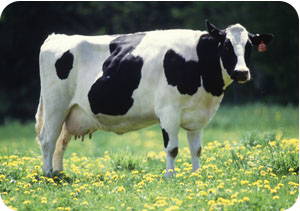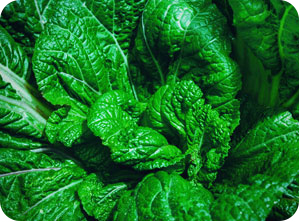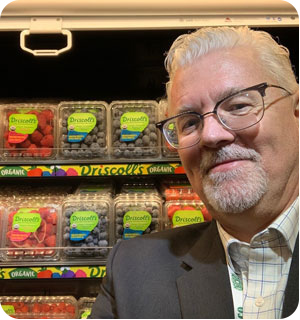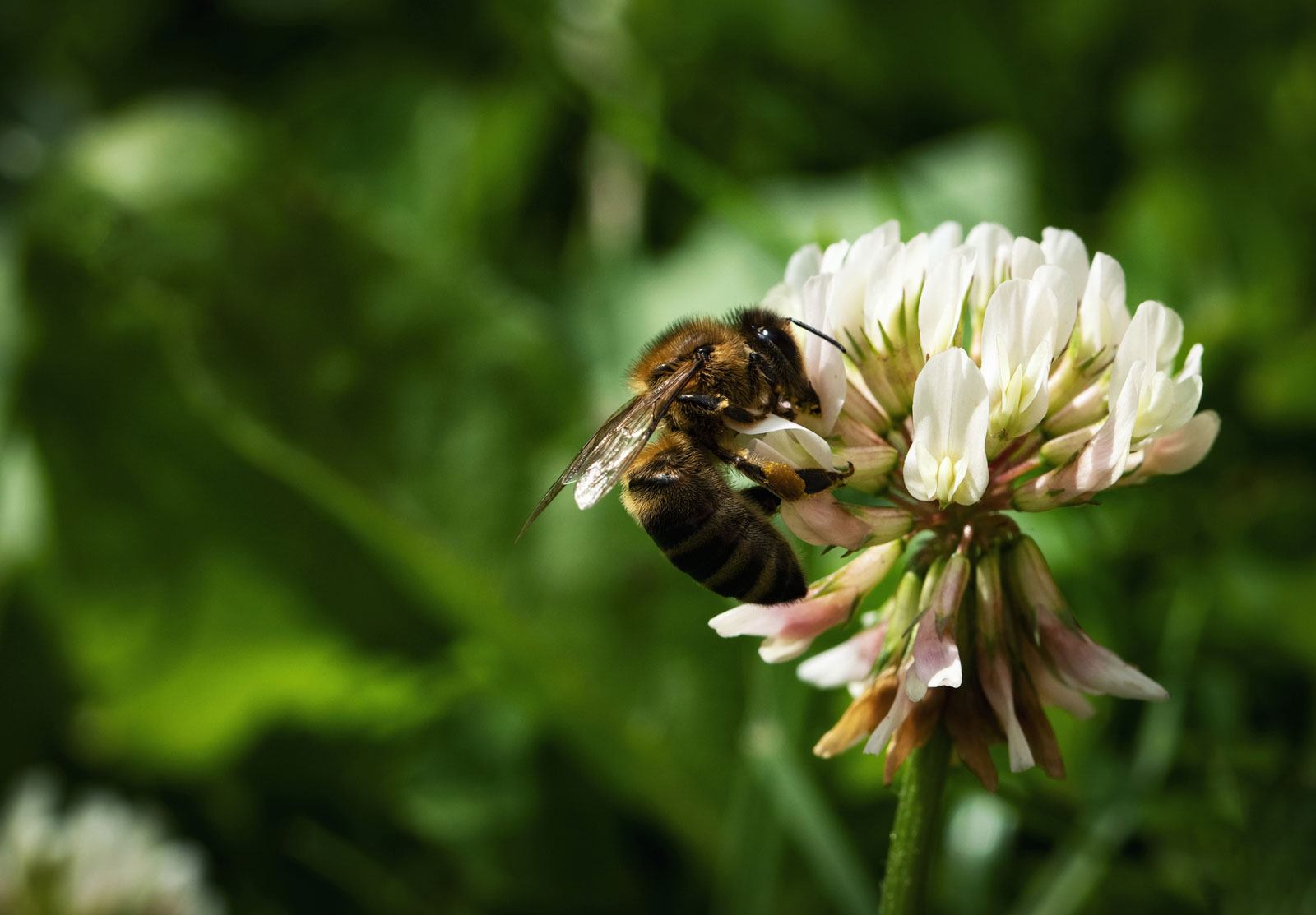Featured Topic
Q&A on the new USDA Origin of Livestock Rule with W&A Associate Mark Keating
The USDA recently published the Origin of Livestock (OOL) Final Rule that significantly impacts the requirements for sourcing organic ruminants (cows, sheep and goats). What issue is the OOL seeking to address?
Publication of the OOL corrects a serious structural flaw in the organic dairy standards. The issue is the care that cows entering production receive prior to their milk becoming certified organic. In the Final Rule that USDA published in 2000, there were two pathways for dairy farmers to bring their herds into compliance. The first required one year of continuous organic management with compliant feed, health care and living conditions. The second offered a one-time option of transitioning their herds by incrementally increasing the amount of organic feed provided while maintaining the compliant health care and living conditions requirements for the full year. There were practical reasons why the two pathways worked for different types of farms.
Based on the recommendation of the National Organic Standards Board, USDA intended to create a consistent standard that required all dairies, regardless of their pathway to certification, to source replacement animals that had been under continuous organic management since the last third of their gestation. Meeting this standard required organic management for the maternal cow as well as for the female calf from birth through its first lactation roughly two years later. However, an error in the text of the standards exempted dairies that had taken the ‘continuous management pathway’ from this “last third of gestation” requirement while imposing it on those that had used the other pathway. This error opened the door for some to source replacement cows that were raised conventionally prior to being transitioned to organic during their second year of life. The new OOL standard establishes the consistency that USDA always sought by making the last third of gestation standard universal.
What were the effects of the two-tier standard for replacement cows?
It’s hard to overstate how the unintended two-pathway replacement standard shaped the organic dairy. It allowed some organic farms to reduce costs and grow faster by enabling them to outsource raising replacement animals to hybrid conventional/organic farms. There is considerably more risk in raising replacement cows under continuous organic management when treatment with a prohibited substance will remove them from the herd. Also, finding pasture for young animals is challenging for farmers who need land to graze milking cows. Ready access to transitioned replacement heifers for the dairies exempt from the last third of gestation requirement also collapsed the market for replacement heifers.
How will the consistency that OOL brings to the standards impact the organic dairy market?
The organic dairy sector is very different than it was twenty years ago, and isolating OOL’s impact from other market conditions is not a simple task. The organic milk market is consistently long on supply; though, as with its conventional counterpart, increased demand for butter fat and other components is helping buffer flat fluid milk sales. By leveling the playing field between dairies, OOL will likely stabilize production and pricing by slowing the speed at which larger dairies can expand. This would be welcome news for those dairies which chose the transitional pathway long ago, as they are characteristically family-style operations whose herds produce a surplus of heifers that will now be much more desirable in the marketplace.
 Mark Keating has worked in organic farming and certification since 1988, and his diverse experience includes four years of service with the USDA National Organic Program. As the NOP’s lead Crop and Livestock Specialist, he was responsible for drafting the production standards included in the Final Rule creating the National Organic Program. He now combines consulting for W&A clients with conducting about 175 crop, livestock and handling inspections annually.
Mark Keating has worked in organic farming and certification since 1988, and his diverse experience includes four years of service with the USDA National Organic Program. As the NOP’s lead Crop and Livestock Specialist, he was responsible for drafting the production standards included in the Final Rule creating the National Organic Program. He now combines consulting for W&A clients with conducting about 175 crop, livestock and handling inspections annually.
Organic Regulatory Updates
UNITED STATES
USDA Renews Charter for National Organic Standards Board
The National Organic Standards Board (NOSB) plays a critical role in advising USDA on the implementation of the Organic Foods Production Act. To facilitate this work, the USDA reviews and renews the NOSB Charter every two years. The 2022 NOSB Charter update process is now complete, and the new version is posted on the AMS website. This revised Charter will expire on July 7, 2024.
The 2022 NOSB Charter includes a change from previous charters. Four seats have been re-designated from being Representatives to being Special Government Employees (SGEs). This reflects language in the Organic Foods Production Act specific to those seats, which refers to the need for members to have “expertise” in specific areas.
The four re-designated seats include the three individuals with expertise in areas of environmental protection and resource conservation; and the one individual with expertise in the field of toxicology, ecology, or biochemistry. The transition to this designation will be accomplished either voluntarily by current members, or as terms expire and new members are appointed to these seats.
Save the Dates For NOSB Activities
The next National Organic Standards Board meeting, October 25-27, will be webcast AND held in person in Sacramento, California, provided COVID conditions do not deteriorate. Public comment webinars will be October 18-20. Comments for the NOSB will be due September 29, and the meeting agenda is expected in late August. If you need help drafting comments from your business, let us know.
NOSB Is Looking For a Leader To Volunteer
The National Organic Standards Board (NOSB) will have one seat open for an individual with expertise in environmental protection or resource conservation for a five-year term starting January 2023. Nominations are due August 5. Wolf & Associates’ own John Foster served on the NOSB, and would be happy to share insights on what it’s like to serve on this volunteer board. Get in touch to ask him about it.
Learn More About Organic Dairy Requirements The Organic Integrity Learning Center has expanded its organic dairy compliance training. Organic Dairy Compliance 2 builds on NOP-090: Organic Dairy Compliance and provides an in-depth review of the pasture practice standard and grazing season and pasture management requirements. One of the topics the free course explains is the process of conducting feed audits to verify that animals receive a minimum of 30 percent dry matter intake from grazing, on average, over the course of the grazing season Register online.
The Organic Integrity Learning Center has expanded its organic dairy compliance training. Organic Dairy Compliance 2 builds on NOP-090: Organic Dairy Compliance and provides an in-depth review of the pasture practice standard and grazing season and pasture management requirements. One of the topics the free course explains is the process of conducting feed audits to verify that animals receive a minimum of 30 percent dry matter intake from grazing, on average, over the course of the grazing season Register online.
Importing Organic Goods From India?
As of July 12, the US National Organic Program requires that organic operations in India wishing to sell in the United States to be certified through a NOP-recognized program. To continue accepting products from suppliers in India, operations will need to use the Organic Integrity Database to verify that any organic supplier is already certified or has applied for organic certification with a USDA-accredited certifier. More.
House Funding Proposal Bumps Up NOP Funding
The House Appropriations Committee included $7 million for the Organic Transition Research Program for FY2023, down $500,000 from last year, in a bill to fund USDA programs. The National Organic Program, meanwhile, would get a $2 million increase, up to $22 million in funding. The House voted to approve the agriculture appropriations on July 20th. More information can be found here and here.
WORLDWIDE
European Union Takes Steps To Reduce Pesticide Use
The European Commission proposed legally binding national and European Union targets to cut the use of chemical pesticides in half by 2030, based in part on growing concerns about the build-up of pesticide residues and their metabolites in the environment. Part of the proposal would require farms to practice integrated pest management and would ban all pesticides in sensitive areas. More.
Pennsylvania And Lithuania Sign Agriculture Agreement
Lithuania and Pennsylvania have signed a memorandum of understanding to foster agriculture business opportunities and to share information on agriculture issues, including organic farming, hemp, animal and plant diseases, and climate-friendly agriculture techniques. The two regions have had a connection since 1993 when Pennsylvania’s National Guard was paired with Lithuania. More.
 Ukrainians Rise To Logistics Challenges War Creates
Ukrainians Rise To Logistics Challenges War Creates
With all its seaports blocked and many bridges damaged in the war, Ukraine is shipping more of its organic exports by rail and river vessels. New trade routes send more products through Romania, Poland and Lithuania. Due to proximity, Europe has become an even more important trading partner for the embattled country. On the farm side, 30 percent of certified organic land in Ukraine is either occupied or mined, reports the Ukrainian Ministry of Agrarian Policy and Food. Nevertheless, 99 percent of the sowing campaign in 2022 is complete. More.
Sri Lanka’s Woes Not Caused By Shift To Organic Farming
Headlines about the effects of shifting to organic agriculture in Sri Lanka are misleading, says the president of the Lanka Organic Agriculture Movement. A complicated series of issues—including COVID-related tourism decline, a severe cooking gas shortage, and record-breaking inflation—contributed to the current shortage of food. Faced with a financial crisis in 2021, the Sri Lankan government needed to cut spending drastically, and one of the measures was to ban agrochemical imports in April. The seven-month ban did not last long enough to cause the massive upheaval the country now faces. More.
GMO News
Japan To Enforce New GMO Labeling System in 2023 Japan updated its labeling regulations for genetically modified foods to include mustard greens, which were recently approved for sale in Japan. They join soybeans, corn, potatoes, rapeseed, cottonseed, alfalfa, sugar beet, and papaya as the nine major agricultural products that are subject to mandatory GM labeling. In addition, processed foods that are made from these nine products will also be subject to mandatory labeling if the GMO DNA or protein produced by the DNA is still detectable after processing. The Consumer Affairs Agency will monitor labeling on 33 major product categories, including tofu, soymilk, snacks, canned foods, oils, soy sauce, and more. Beginning in 2023, the labeling system will include a voluntary option for ’not genetically modified (non-GM)’ that can be used only when GM materials are not detected in the product. More.
Japan updated its labeling regulations for genetically modified foods to include mustard greens, which were recently approved for sale in Japan. They join soybeans, corn, potatoes, rapeseed, cottonseed, alfalfa, sugar beet, and papaya as the nine major agricultural products that are subject to mandatory GM labeling. In addition, processed foods that are made from these nine products will also be subject to mandatory labeling if the GMO DNA or protein produced by the DNA is still detectable after processing. The Consumer Affairs Agency will monitor labeling on 33 major product categories, including tofu, soymilk, snacks, canned foods, oils, soy sauce, and more. Beginning in 2023, the labeling system will include a voluntary option for ’not genetically modified (non-GM)’ that can be used only when GM materials are not detected in the product. More.
Women Avoid Gene-Edited Foods
A new study from Iowa State University gauges public acceptance of gene-edited foods. Based on a survey of a nationally representative sample of 2000 US residents, researchers found that a person’s likelihood of eating or avoiding gene-edited food is driven by social values and how much they trust government food regulators and the agriculture biotechnology industry. People more willing to eat gene-edited foods place a high level of trust in government and industry and tend not to have strong beliefs about how food should be produced. They tend to be under 30 years of age, more highly educated, and have higher household incomes. Those who avoid eating gene-edited foods are skeptical of science and technology, place greater value on how food is produced and rely on their beliefs and environmental groups over government and industry. They tend to have lower incomes, be more religious, older and female. About 60% of the women in the survey said they avoid gene-edited foods and are unwilling to eat them. Researchers intend to repeat the survey every two years for the next decade to track changes in acceptance of gene-edited foods as more are introduced. More.
Inside the Beltway
Get Paid For Protecting Waterways
The Conservation Reserve Program’s Clean Lakes, Estuaries, and Rivers (CLEAR) program has a newly expanded pilot program CLEAR30 specifically targeting certain conservation practices. Farms and ranches that meet basic eligibility requirement and also use buffer practices, such as riparian buffers, filter strips, field windbreaks, contour strips, prairie strips, and grass waterways, can enroll in the Continuous Conservation Reserve Program, and receive incentive payments. Cropland and certain marginal pastureland contracts expiring on September 30, 2022 that contain these practices are eligible to enroll. Producers interested in enrolling in CLEAR30 should contact their local Service Center. Applications are due by August 5, 2022.
Comment Period Extended on APHIS Strategic Plan
The United States Department of Agriculture’s (USDA) Animal and Plant Health Inspection Service (APHIS) is developing a new five-year strategic plan. APHIS encourages stakeholders to comment on the plan’s framework, including the mission and vision statements, core values, strategic goals and objectives, and trends or signals of change that will influence the agency’s work. Comment on Docket number APHIS-2022-0035 by July 31.
Organic Industry News & Notices
OFRF Funds Research In Mexico
The Organic Farming Research Foundation and the Foundation for Food & Agriculture will support on-farm research on climate resilience for staple crop producers in Chiapas, Mexico. The project will address the perceived lack of viable organic alternatives in growing staple crops such as corn and beans. Mexico’s highland region, known for its coffee production, has been severely impacted by the climate crisis. The local area experiences food insecurity and total profitability for smallholder coffee producers remains volatile. All research results will be available for free on the OFRF website.
Farmland Remains Under Threat, Says American Farmland Trust
American Farmland Trust’s new report ‘Farms Under Threat 2040: Choosing an Abundant Future’ examines how three different development scenarios could impact the availability of farmland in the United States. From 2001-2016, the United States lost or compromised 2000 acres of farm and ranch land every day. If this trend continues, an area nearly the size of South Carolina will be lost by 2040. If more people choose to live on large lots in rural areas—exacerbating low-density sprawl—even more farm and ranch land could be lost. Meanwhile, the report offers a vision of better-built cities, with efficient growth and denser, more livable development, which would spare half the land of the runaway sprawl scenario. The report also considers how climate change could threaten farmland, offers county-by-county data, and provides recommendations for local, state, and national public policy makers.
Learn How To Make Use Of Birds To Manage Pests
The Wild Farm Alliance offers a series of ten free online courses for agriculture professionals and farmers on how to support birds and make use of their pest control services, and how to manage pest birds.
Did You Know?
California Legislates Plastics Reduction Measures
In an effort to reduce plastic pollution, California will require all packaging in the state to be recyclable or compostable by 2032, cutting plastic packaging by 25% in 10 years and requiring 65% of all single-use plastic packaging to be recycled in the same timeframe. Use of expanded polystyrene must drop 25% by 2023, a very challenging target. The law also establishes a plastics pollution mitigation fund to support disadvantaged communities hurt by plastics waste. More.
Fairtrade Certification Helps Farms And Communities
A decade-long study has found farmers who are part of Fairtrade certified Producer Organizations experience better economic resilience, social wellbeing, environmental sustainability and governance of their cooperatives than farmers not in Fairtrade certified organizations, particularly in times of global crisis. The ‘Assessing the Impact of Fairtrade on Poverty Reduction and Economic Resilience through Rural Development’ study, completed for Fairtrade America, shows that Fairtrade’s price mechanisms represent a crucial safety net for farmers, their cooperatives and eventually their communities. In addition, the study identified three significant challenges that risk undermining the gains Fairtrade farmers have achieved, including climate change, COVID-19 and prices too low to cover rising costs of farming and daily life.
From The ‘Words Matter’ Files: Bees Are Fish
California’s endangered bees are less likely to sink into oblivion now that a court decision categorized them as fish. Although land invertebrates are not explicitly mentioned in the California Endangered Species Act, the state’s fish and game code does include invertebrates under the definition of fish. Therefore, the judges in California’s Third District Court of Appeal ruled that the California Endangered Species Act (CESA) can protect invertebrates, including four species of imperiled native bumble bees.
Organic Community

Congratulations To Driscoll’s!
Progressive Grocer magazine named Driscoll’s as one the 100 Brands That Changed Grocery. Bill Wolf has provided Driscoll’s with consulting advice since 1983, and they have been a client since Wolf & Associates formed.
Pictured left, W&A’s John Foster visited the Drisoll’s Booth at Organic Produce Summit last week.
Help Manage CCOF Certification Services
California Certified Organic Farmers (CCOF) seeks applicants for a three-year term on the CCOF Certification Services, LLC Management Committee. Applicants with experience in handling/processing, inspections, and international trade, as well as applicants familiar with Mexico’s organic regulations are of particular interest. CCOF-certified members are not eligible. Apply by August 31, 2022.
Find Us On LinkedIn
Wolf & Associates invites you to follow us on LinkedIn. Our W&A LinkedIn site includes timely news, updates on hot topics and industry events to provide you with information, insights, and the news-you-need-to-know on the ever-changing organic, regenerative and sustainable industry. We’re excited to share our deep knowledge of organic, and we’d love to hear from you on LinkedIn. Please share your thoughts, questions, recent challenges and solutions. Together, we can grow ORGANIC INTEGRITY.

